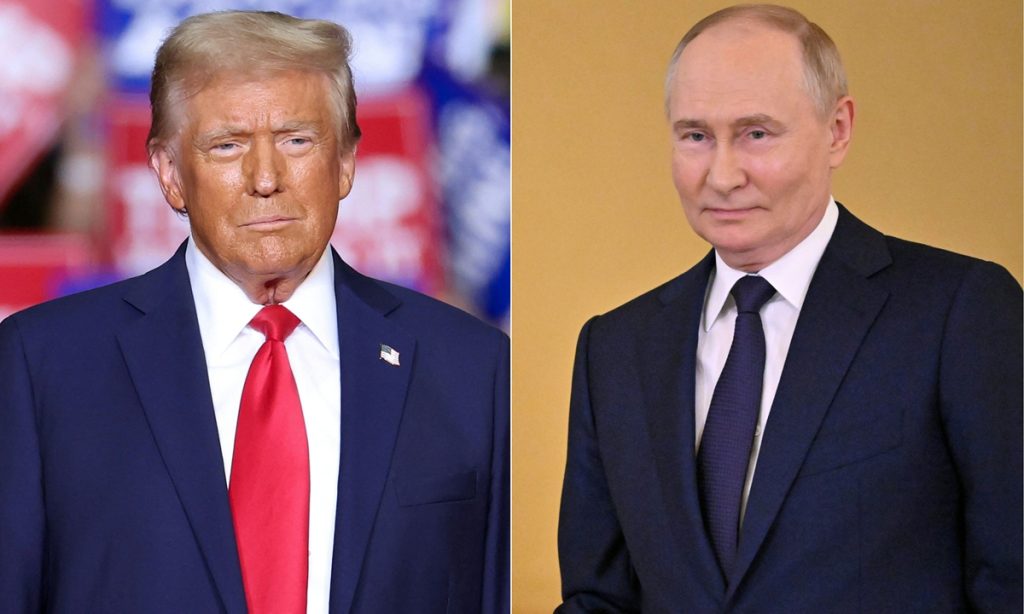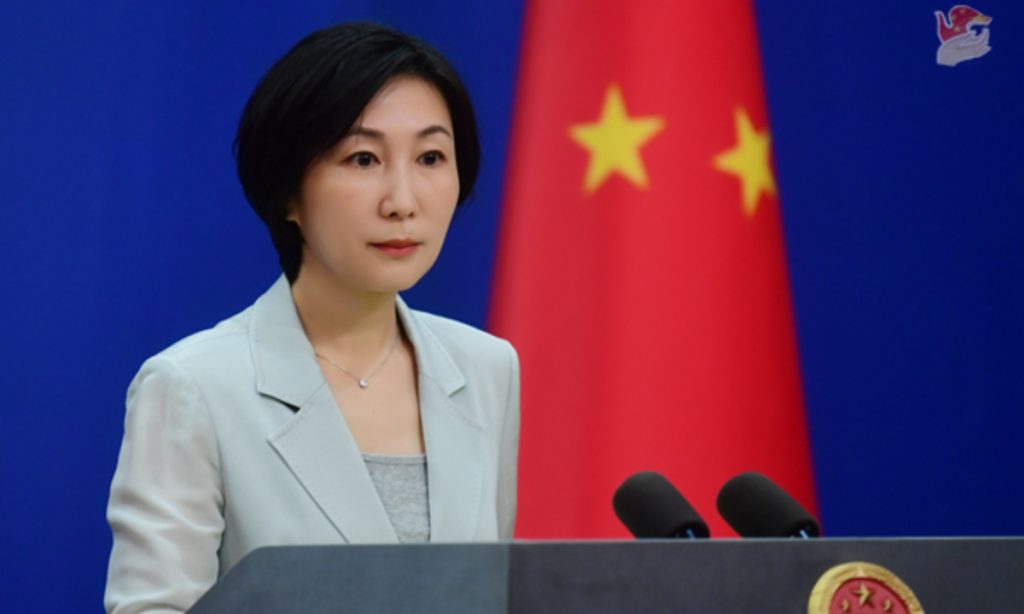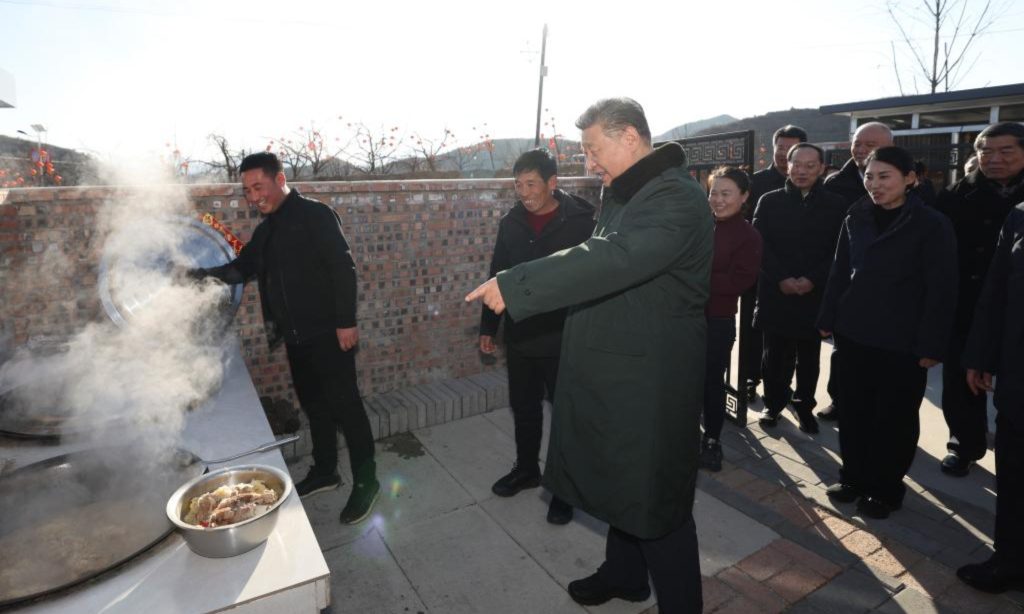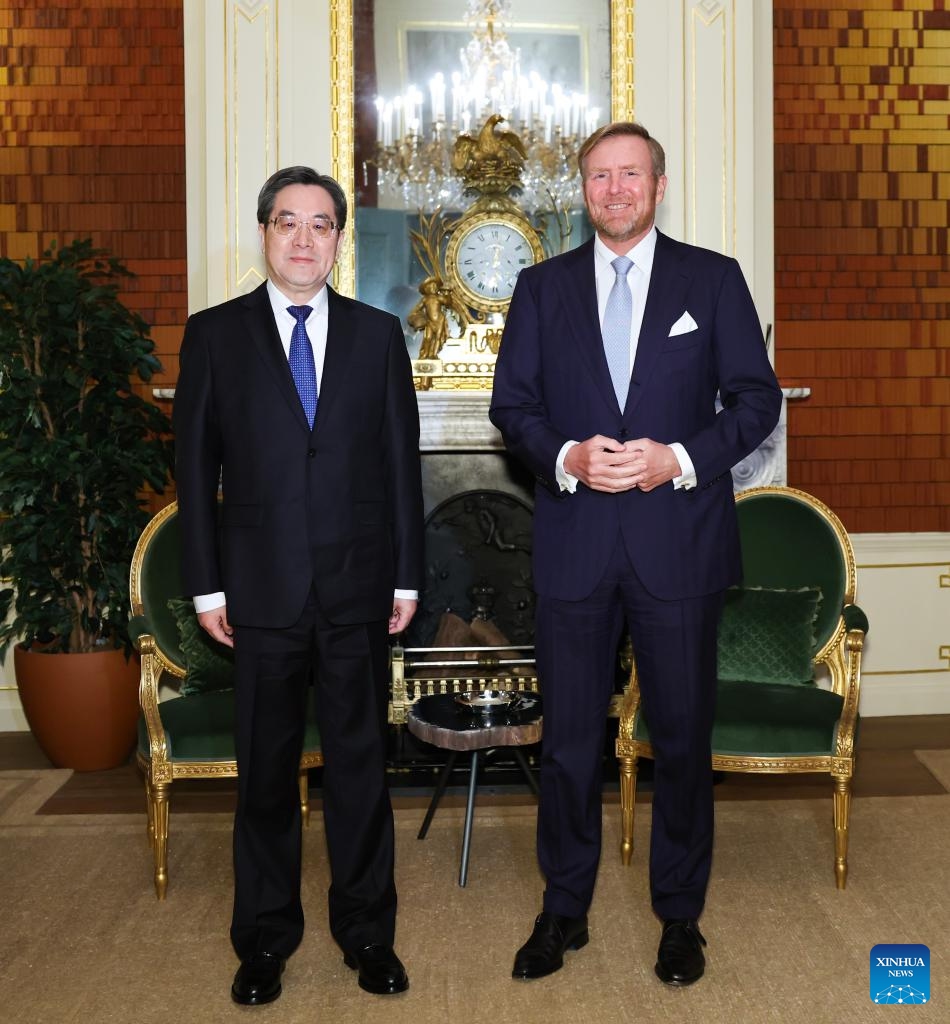US, Russia agree to prepare for Trump-Putin meeting; key issues remain big obstacles: expert

Russian Foreign Minister Sergey Lavrov and US Secretary of State Marco Rubio agreed on preparations for a meeting between Russian President Vladimir Putin and his US counterpart Donald Trump, and they will maintain a channel of communication to resolve accumulated problems in US-Russian relations, the Russian Foreign Ministry said on Saturday. If realized, this meeting could serve as the first step for thawing relations between Moscow and Washington, said Chinese experts, although they noted that key issues such as solving the strategic confrontation between Russia and Europe, and addressing US sanctions on Russia, among others, remain big obstacles.
Lavrov and Rubio agreed during a telephone conversation to hold regular communication on a variety of matters, including preparations for a meeting between Putin and Trump, the Russian Foreign Ministry said, according to Russian News Agency TASS.
Lü Xiang, an expert on US studies and a research fellow at the Chinese Academy of Social Sciences, pointed out that how to deal with the US sanctions against Russia, especially energy sanctions, is an inevitable issue. He said that the US and Russia are competitors in the energy field. After the outbreak of the Ukraine crisis, Europe depended heavily on US exported liquefied natural gas due to sanctions on Russia. Moscow hopes to have the energy sanctions lifted, but this would mean the US would be "undermining its own interests," Lü said.
Li Haidong, a professor at the China Foreign Affairs University believes fundamental differences remain between Russia and US regarding a solution to the Ukraine crisis.
US and Russian officials will meet in Saudi Arabia in the coming days to start talks aimed at ending the nearly three-year war in Ukraine, Reuters reported on Saturday.
Rubio, National Security Adviser Mike Waltz and White House Middle East Envoy Steve Witkoff will travel to Saudi Arabia, US Representative Michael McCaul told Reuters. It was not immediately clear who they would meet from Russia.
The news came after Trump made separate phone calls to Putin and Ukrainian President Vladimir Zelensky on Wednesday.
Zelensky, who met with US Vice President JD Vance in Germany on Friday, said Ukraine was not invited to the talks in Saudi Arabia and Kiev would not engage with Russia before consulting with strategic partners, media reported.
The US' main goal is to seek a cease-fire, while Russia seeks to fundamentally solve the issue of the overall strategic confrontation between Russia and Europe, yet such fundamental divergences are difficult to resolve through partial negotiations, Li said, noting that "moreover, for the relationship between Russia and Ukraine to be repaired and build mutual trust, more problems will remain."
Europe, which is already shocked by Trump's call with Putin, might not even have a seat at the table for Ukraine peace talks, Trump's Ukraine envoy said on Saturday, after Washington sent a questionnaire to European capitals to ask what they could contribute to security guarantees for Kiev, Reuters reported.
But European leaders said they would not accept being shut out of the talks.
"There's no way in which we can have discussions or negotiations about Ukraine, Ukraine's future or European security structure, without Europeans," Finland's President Alexander Stubb told reporters in Munich.
Based on the situation, Europe stands to incur significant losses in the ongoing Russia-Ukraine conflict. This is not only because the continent has to shoulder the direct repercussions of the three-year-long crisis, but also from Europe's diminishing capacity to influence the trajectory of the situation, Cui Heng, a scholar from the Shanghai-based China National Institute for SCO International Exchange and Judicial Cooperation, told the Global Times.
China hopes all relevant parties and stakeholders involved in the Ukraine crisis will engage in the peace talks process at an appropriate time, and seek a political settlement through dialogue and consultation, Chinese Foreign Minister Wang Yi said on Friday when answering questions following his keynote speech at the "China in the World" session of the Munich Security Conference, the Xinhua News Agency reported.
Regarding China's stance on resolving the Ukraine crisis, Wang said that China has consistently advocated for settling global disputes and conflicts through dialogue, consultation and political means, which applies equally to the Ukraine issue.


